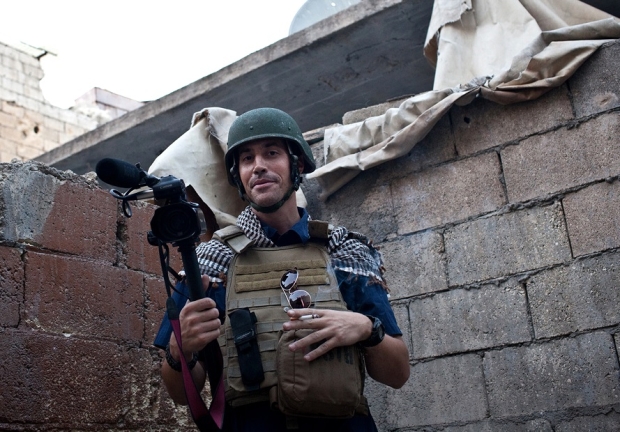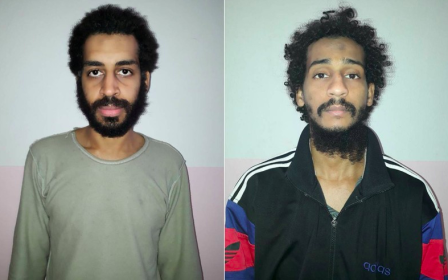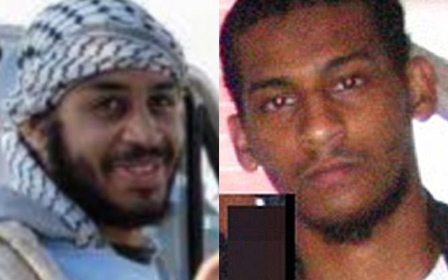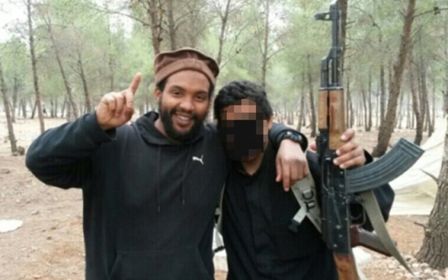'No British involvement' in interrogation of IS 'Beatles'
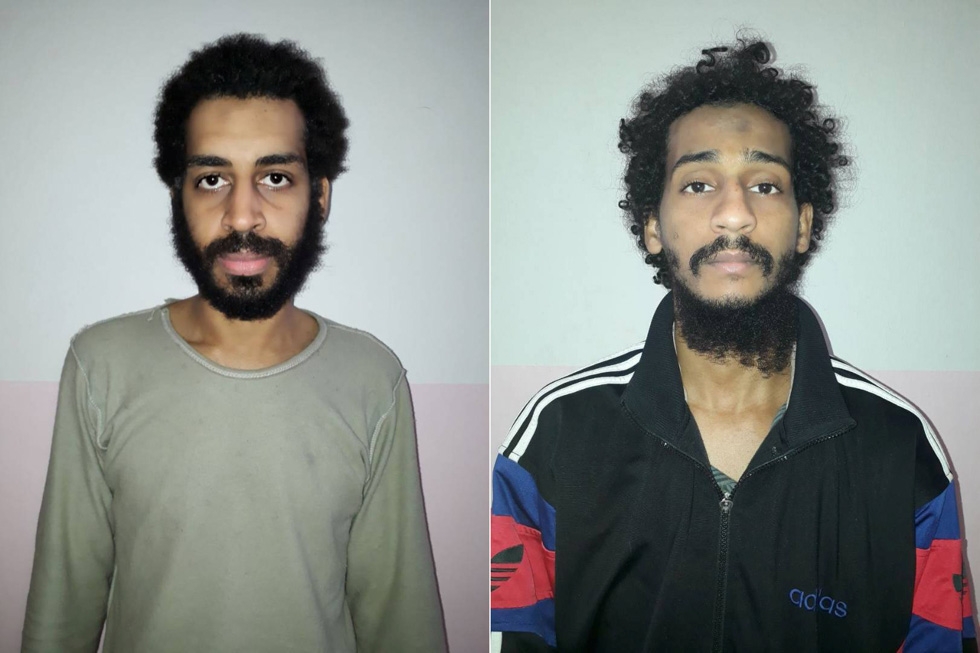
A British man accused of being a member of a notorious Islamic State (IS) torture cell has said there has been no British involvement in his interrogation since his arrest over two months ago.
Elshafee Elsheikh is being held by the Syrian Democratic Forces (SDF), a Kurdish-led militia in Syria, along with Alexanda Kotey.
Both are suspected members of a cell of four British IS fighters known as "the Beatles" on account of their British accents.
Elsheikh has been interrogated by the SDF and US officials but not by the British, he said, in a television interview with the UAE-based Al Aan TV.
"American government, SDF officials, that's it. No British involvement," he said when asked who had interrogated him.
Elsheikh said he had been interrogated by a range of US officials including the Department of Defense and the FBI.
"Before it was the Department of Defense. They were ok. Some of them were some respectable people. Then they brought some less respectable people. Then they brought the FBI, who are the least respectable out of the bunch," he said.
The US believes the cell beheaded more than 27 Western hostages and tortured others.
Many of the hostages were beheaded by Mohammed Emwazi, a British militant dubbed "Jihadi John" by the media, in executions which were filmed and subsequently broadcast online by IS in propaganda videos.
Elsheikh "earned a reputation for waterboarding, mock executions and crucifixions while serving as an [IS] jailer," according to the US State Department.
While both Kotey and Elsheikh were British citizens when they travelled to Syria, it is believed the British government has revoked their citizenship leading to uncertainty over whether they will be tried in Britain, the US or at the international criminal court at The Hague.
Emwazi, believed to be the ringleader of the group, was killed in a drone strike in Raqqa, Islamic State's de facto capital in Syria, in January 2016.
The third member of the group, Aine Lesley Davis, was arrested and sentenced to seven years in prison in Turkey last year.
The British Foreign and Commonwealth Office did not immediately respond to requests for comment.
'I don't denounce slavery'
In the interview, which took place in the Kurdish-controlled city of Kobane in Syria, Elsheikh is standoffish and refuses to answer specific questions about his time in IS, saying that due to an "ongoing legal process" he cannot "talk about any accusations made against me or anyone else".
Kotey and Elsheikh have in the past said that the removal of their British citizenship jeopardises their right to a fair trial.
In a separate interview last week, Kotey said a trial at the Hague would be "the logical solution" and the fairest venue.
Elsheikh was also flippant about the crimes committed by IS and apparently attempted to justify the practice of enslaving Yazidi women.
When asked whether he disagreed with any of the group's practices he said: "Traffic tickets. Such things have no basis in the law of Allah."
Regarding the enslavement of Yazidis, he said he never met any Yazidi women in Syria before arguing in favour of the practice.
"I don't denounce slavery, no. You have to understand that just because America decided to abolish something ... it does not mean that every person has to run behind American and say this is now an abominable act that nobody can do," he said.
"The reality is slavery is something that has been around as long as humans have been around."
Elsheikh said he had seen the video recordings but that they were not something he enjoyed seeing.
In February, UK Home Secretary Amber Rudd said Kotey and Elsheikh should go on trial but didn't specify where.
"We're absolutely committed to making sure that they are tried," Rudd said.
"These people should face the full force of the law. I can't be drawn at the moment into ... where that will take place. But I am certain, because we'll be working with the Americans to ensure this, that they will face justice."
Defence Minister Tobias Ellwood has called for the men to be tried in an international criminal court.
Middle East Eye propose une couverture et une analyse indépendantes et incomparables du Moyen-Orient, de l’Afrique du Nord et d’autres régions du monde. Pour en savoir plus sur la reprise de ce contenu et les frais qui s’appliquent, veuillez remplir ce formulaire [en anglais]. Pour en savoir plus sur MEE, cliquez ici [en anglais].


